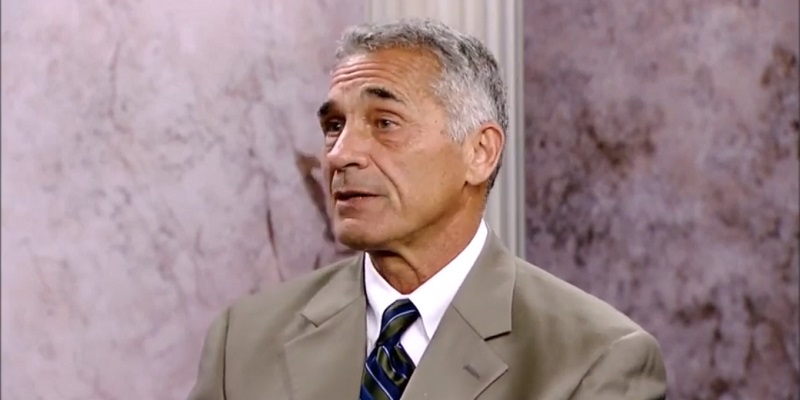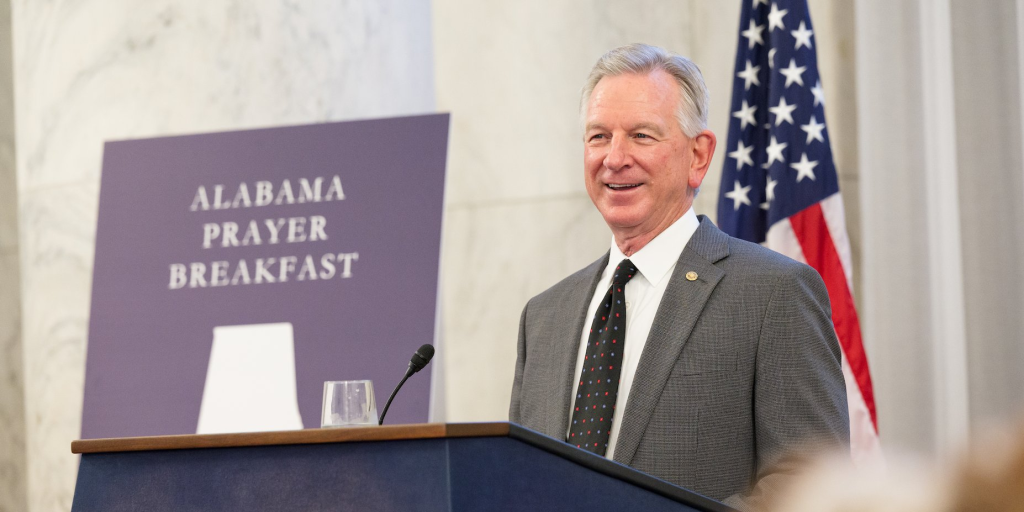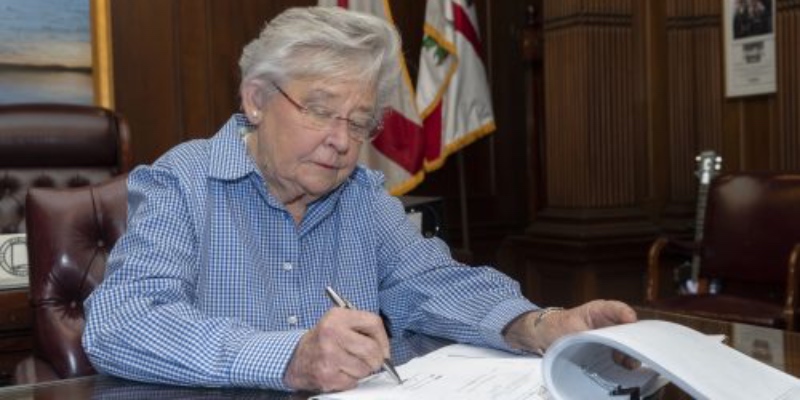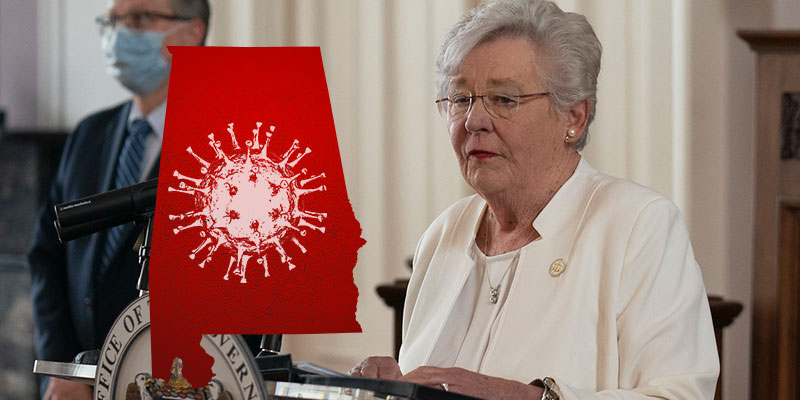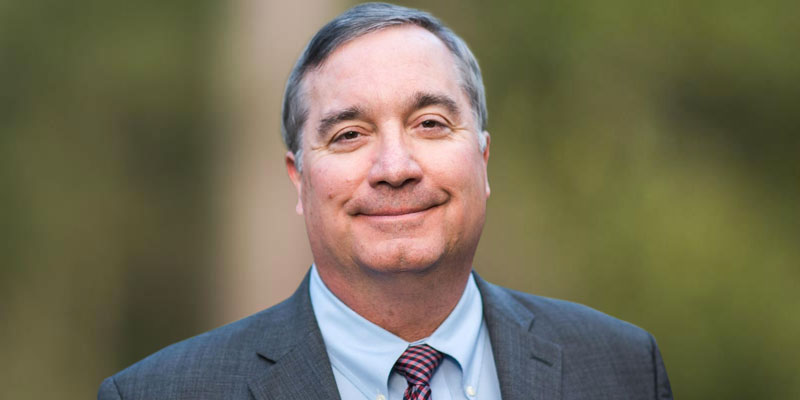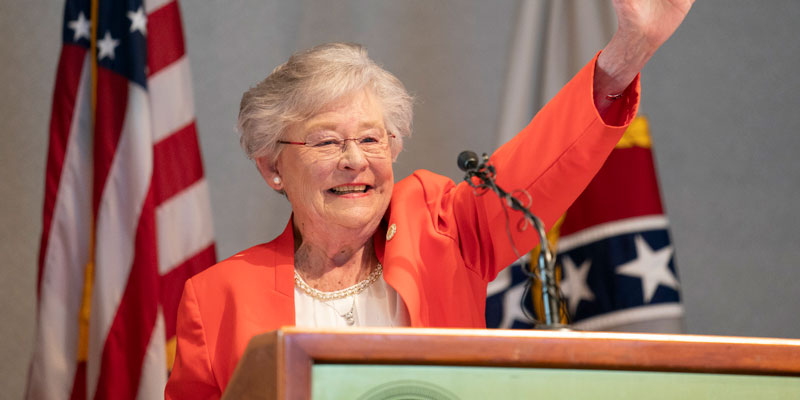It has been a few days since the Alabama legislature adjourned sine die after a tense lead-up on Goat Hill between Gov. Kay Ivey’s office, the House and the Senate. It may, however, take some more time for relationships to fully heal, especially between the Alabama Senate and House of Representatives.
Senate President Pro Tem Del Marsh (R-Anniston) offered his take on what happened in those days before the passage of Ivey’s proposed executive amendment to SB 161, which dealt $1.8 billion in funding allocated by Congress through the Coronavirus Aid, Relief, and Economic Security (CARES) Act during an interview with Huntsville radio’s WVNN on Wednesday.
Late Friday, after Ivey announced what at the time appeared to be a deal between the House leadership and her office, members of the Senate leadership questioned as to why they were not included. Marsh voiced his frustration with his lower chamber colleagues for being left out of the process.
“I don’t know if it is as much the governor’s office as it is the House,” Marsh said. “We try to always include the House in any negotiations we have. You probably heard me talk about it. We were asked by the governor’s office with this $1.7 billion on suggestions about how we may consider spending it based on guidelines. We sat down. I called a meeting with House members. We sat in a room, 11 of us — went through things that might be considered, sent that list to the governor.”
“At the end of the day, the governor, I guess, get upset about the fact that language was in the budget that has been in the budget in past budgets that basically says federal dollars will be appropriated by this legislature,” he continued. “The governor made an issue with the talk that had taken place on the State House, which had only taken place because of public access. It became an issue, unfortunately, and inadvertently caused the House, who had voted with us to pass a supplemental appropriation giving the governor some $200 million of that money to spend as she needed to, and then call a special session so we could all decide how to spend the rest. The House voted 76-0 on that.”
“But during the week, they had apparently got with the governor,” added Marsh. “I had no knowledge. The sponsor of the legislation, [Sen.] Greg Albritton, had no knowledge. Next thing we know, there’s a deal cut to greatly change the way the dollars are going to be spent. You know, it is what it is. But the fact that the House did not consult with the Senate on this — I felt like a little bit we had been betrayed on this situation.”
When asked how long it might take for fence-mending between the House and Senate, Marsh said it would take “a while” and said he had been lied to by members of the House.
“I don’t know — I think it’s going to be a while,” he said. “There were people in the House that just flat-out lied. To say they knew nothing about a list we worked with together and sent to the governor — I can’t understand it. And I don’t understand why anybody would lie about that. I mean, it was very straightforward. The Finance Department asked for ideas. We put them on a list. It was none of this ‘wish list.’ That was developed by the governor, there again, to pass onto the legislature. It wasn’t a ‘wish list.’ It was a suggestion of things to be discussed based on what could actually be spent with coronavirus money.”
Marsh added, “If the House had just ‘fessed up and said, ‘We were in the room. Yes, we sent this list. It was to start the discussion with the governor on how best to spend these dollars. And I can’t for the life of me understand why they cowered down and wouldn’t admit they were in the room to discuss these items on the list.”
In an interview that aired Friday on Alabama Public Television, Ivey dismissed the objections from senators over being excluded in the so-called deal, saying, “The leadership of the Senate, the leadership of the House, have my cell phone 24/7.” Marsh responded by explaining he and his members had done what was asked of them by the Finance Department.
“Call out what?” Marsh replied. “I mean, there again, we were called by the Finance Department and asked to participate in ideas. We did that and sent them to the governor. What the governor was upset about was the language in the budget that stated that the legislature would appropriate those dollars. That’s why this whole thing went south. She got angry about that language, which wasn’t intended to take a swipe at the governor. It’s just constitutionally, that’s what we do. And that language has been in the budgets in the past. But she took offense to it. And, when she did — that’s when she made comments about the very list that they had asked for, and then taken shots at the legislature about us wanting a brand-new State House, which the whole State House issue came up because as I said earlier, public access, which we’re not able to allow because of the coronavirus.”
One question that looms large is how might Alabama’s prison system situation, which is under the scrutiny of the Department of Justice for violating the Eighth Amendment’s cruel and unusual punishment provision, be resolved with the erosion of trust between Senate and the governor’s office.
Ivey has indicated she could move forward with a leasing proposal for three new prisons, which would not require the immediate approval of the Alabama legislature. However, Marsh warned that despite Ivey having some latitude, the legislature still has to appropriate the funding for the leases.
“At the end of the day, we’ll have input because we’ve got to put the money in the budget,” he said. “We’ve expressed to the governor more than once make sure we’re comfortable with this number of what this is going to cost if you’re going to build one, two, three prisons — whatever. And of course, she’ll sign a long-term lease — the direction she’s going with, some organization to build these things. And I’m not saying it can’t be done, but at the end of the day, we’ve got to allocate the dollars to pay for this thing. I would hope that everybody understands the next session when we’re faced with the budget, and we see what the price tag of this thing is going to be, if we have no prior knowledge of that price tag, it could be a problem.”
One possible outcome, if the governor were to proceed with her plan without consultation of the legislature, could be a standoff situation between the two branches when it comes time to set money aside. Marsh said that could be possible, but there might be a backlash if funding the prisons meant stripping funding from other areas.
“They can do that if they want to,” Marsh said. “But what they better realize is this: The people of the state of Alabama — they care about things like mental health, children’s services, Medicaid and prisons. But if you think the people of want to swipe from the other departments to give the prisons more money, I think they better recalculate that. We’ve got a lot of need in departments in the state. Prisons deserve their fair share, but I’m personally not wanting to rob and kill the services or mental health to build new prisons.”
“We have to do what we have to do to fulfill the federal order of the judge,” he added. “If we all work together, we can make that happen. There again, we need to be careful on how much money we’re putting into these prisons if it is going to take from other departments.”
@Jeff_Poor is a graduate of Auburn University and the University of South Alabama, the editor of Breitbart TV, a columnist for Mobile’s Lagniappe Weekly and host of Huntsville’s “The Jeff Poor Show” from 2-5 p.m. on WVNN.




